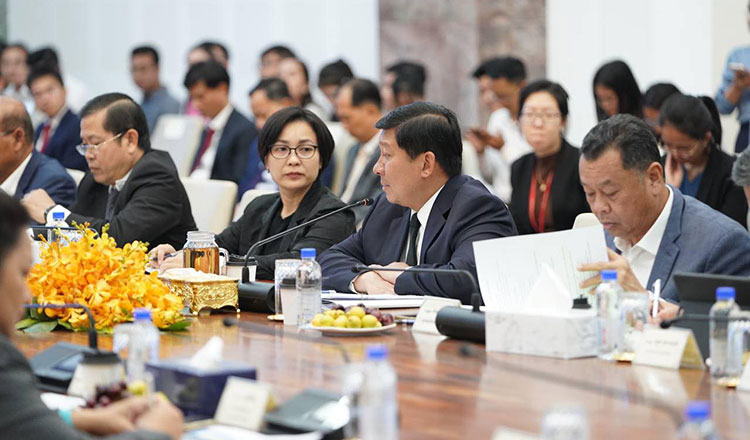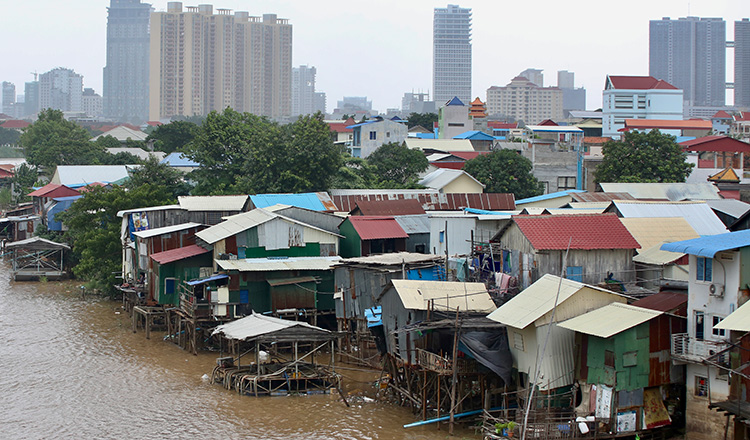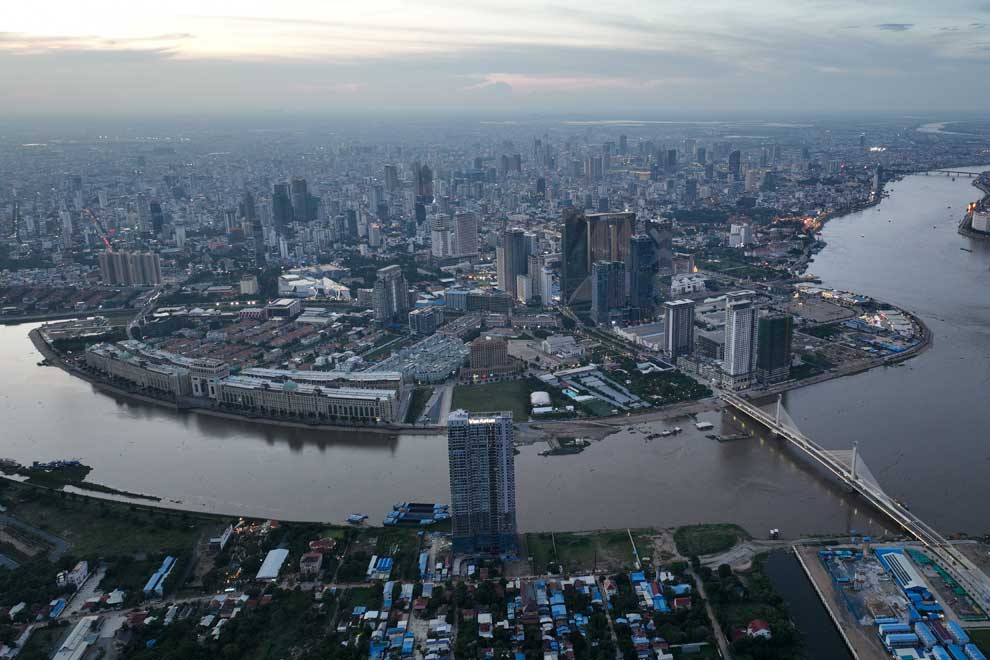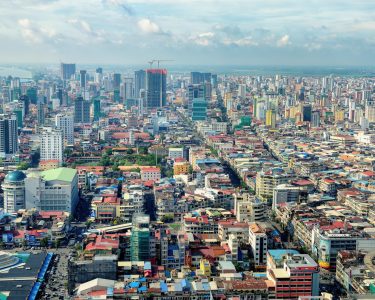Michael Tan
Cambodia’s real estate and construction sectors have been facing significant challenges, marked by a glut of high-end housing far exceeding demand, while affordable homes remain woefully insufficient. This imbalance, exacerbated by imprudent developer loans and practices, has led to financial congestion and high-interest debts, burdening both developers and buyers. The roots of this state of affairs likely trace back to 2009, but the challenging situation came to a head when the real estate bubble burst during the COVID-19 pandemic.
As a key engine of Cambodia’s economy, supporting a wide array of industries and jobs, this largely self-inflicted costly ‘miscalculation’ has triggered a ripple effect: fewer jobs, reduced consumer spending, dampened economic sentiment, and a liquidity crunch compounded by rising debts and defaults. In medical terms, it’s like waiting for blocked arteries to trigger a level-one trauma event – a looming systemic collapse with far-reaching consequences cannot be discounted, if left unaddressed.
Throwing a Lifeline: A Multi-Pronged Government Approach
In response to the developing crisis, the Cambodian government has, over the past week, launched timely interventions to stabilize the real estate market and promote affordable housing. These measures aim to address financial congestion, stimulate demand, and make homeownership accessible for low- and middle-income Cambodians.
Read More: Leader Talks: Michael Tan On Growing Investor Partnerships In Cambodia (Q&A)
On 2 January 2025, the Ministry of Economy and Finance (MEF) announced the establishment of a Technical Working Group to support affordable housing projects. This group will coordinate tax exemptions, assess fiscal impacts, evaluate infrastructure needs, and explore financial strategies to bolster affordability. To support first-time homebuyers, the government also announced a one-year stamp duty exemption – effective 1 January 2025 – for properties under $210,000.
Complementing these efforts, the Ministry of Land Management, Urban Planning & Construction (MLMUPC) and the National Bank of Cambodia (NBC) held a coordinating meeting on 3 January 2025 and introduced debt restructuring initiatives, providing smoother repayment processes for homebuyers and greater liquidity for developers.

Debt Restructuring: A Pragmatic Measure
One of the most significant outcomes of the MLMUPC-NBC meeting is the initiative to transfer high-interest debts from residential owners to banking institutions offering lower rates and extended repayment terms. This pragmatic approach benefits all stakeholders:
- Homebuyers gain access to more affordable financing options, making homeownership attainable.
- Developers receive lump-sum payments, improving liquidity and enabling them to continue projects.
- Banks expand their customer base and contribute to the sector’s stability.
- The government advances its goal to facilitate homeownership for middle- and lower-income groups.
At the heart of this strategy is the recognition that short-term fixes are insufficient. Instead, it offers a coordinated approach to restructure debt, provide low-interest loans, and extend repayment terms, ensuring housing becomes more accessible for Cambodian citizens. For developers struggling with cash flow, this measure provides a much-needed lifeline, allowing them to avoid defaults and sustain their operations.
Affordable Housing: Addressing the Supply-Demand Mismatch
The current real estate slump has cast the spotlight on the proverbial elephant in the room: the glaring mismatch between supply and demand. While developers have long focused on high-value housing, the majority of Cambodians – factory workers, teachers, soldiers, and private sector employees – cannot afford these properties. By conventional definition, housing is considered affordable when it costs no more than one-third of a household’s income. Yet, for many Cambodians, even this benchmark remains out of reach. As a result, the market is oversupplied with luxury homes, while demand for affordable housing remains unserved.
By shifting the focus from high-end developments to projects that cater to local demand, developers and international investors can tap into a more stable and inclusive market. This aligns with Cambodia’s national priorities and global trends toward sustainable urbanization and social equity, while addressing a critical need for affordability.

Challenges for Developers: High Costs, Market Glut, and Intransigence
Developers face high land and construction costs, making affordable housing projects less attractive due to lower profit margins. Past attempts have drawn criticism for poor planning, low-quality construction, remote locations with limited amenities, and negative social stigma.
The oversupply of high-end properties has left many overleveraged developers struggling to sell their inventory. To address this, the government is offering land and tax incentives to encourage a shift toward affordable housing.
However, attitudinal changes must accompany these government measures. Developers must align with the government’s vision, embrace international standards, and commit to practices that prioritize affordability and quality.
Why It Matters for International Investors
The government’s focus on an inclusive housing market aligns with global trends toward sustainability and social impact. These measures reflect the new mandate government’s political will to act decisively and proactively to address pressing challenges head-on, which augurs well for investor confidence.
This presents a strategic opportunity for international investors to tap into the underserved middle- and lower-income housing segment, which offers significant long-term growth potential. By engaging in this nascent market, investors can align with Cambodia’s broader economic ambitions, contribute to the country’s development, and achieve sustainable returns.

The Outlook Ahead
Cambodia’s real estate sector is at a pivotal moment. While some experts estimate that recovery may take up to five years to restore supply-demand balance, the government’s recent initiatives offer a clear path forward. The glut in the secondary market, where buyers prefer new properties over resale homes, adds complexity but also underscores the need for innovative solutions.
Despite these challenges, the sector is poised for transformation. By reviewing housing policies, addressing outdated practices, and embracing international norms, Cambodia can build a more sustainable and inclusive market – one that aligns with its national interest and long-term development goals.
Affordable housing must become the new cornerstone of the sector. It is an investment opportunity with significant long-term potential as demand grows and policies evolve. More importantly, addressing the aspirations of Cambodia’s youthful population to become homeowners – a goal elusive even in many developed countries – can fuel stability, confidence, and economic growth.
This transformation will help put Cambodia firmly on the path toward its ambition of becoming an upper-middle-income country by 2030 and a high-income country by 2050. For investors, developers, and policymakers alike, it is the opportune time to make common cause, transform the real estate sector, and secure a sustainable future for Cambodia.
These are personal views of:

MICHAEL TAN





